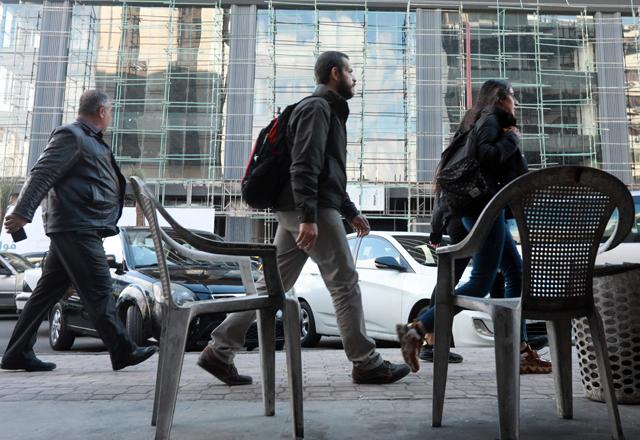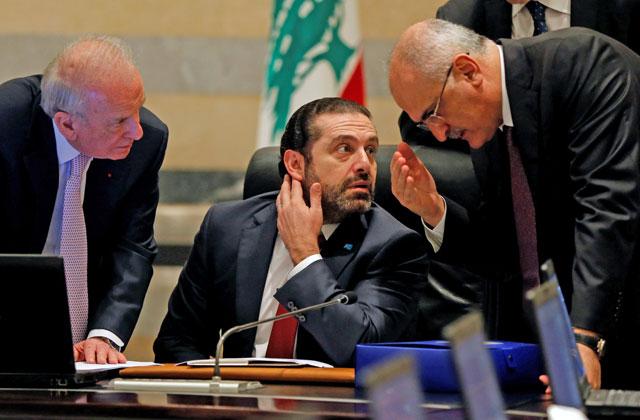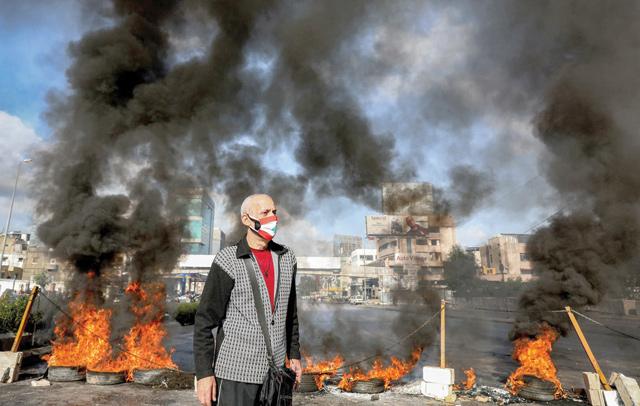You are here
Lebanon hopes to raise billions to keep economy afloat
By AFP - Apr 05,2018 - Last updated at Apr 05,2018
BEIRUT, Lebanon — Lebanon is hoping to raise billions of dollars at a France-led donor meeting on Friday to stave off an economic crisis in the world's third most indebted country.
Growth in the small Mediterranean country has plummeted in the wake of repeated political crises, compounded by the 2011 breakout of civil war in neighbouring Syria.
The Syrian war has sent 1 million Syrian refugees in flight to Lebanon, a country of only 4 million before the conflict.
The Paris conference comes as Lebanon gears up for its first general elections in almost a decade in May, after parliament renewed its own mandate three times since 2009.
The Middle Eastern country hopes donor countries and financial institutions at the CEDRE conference will help stimulate the economy through investment.
Lebanon hopes to raise "between $6 billion and $7 billion in the shape of credit facilities and funds", Nadim Munla, an adviser to Prime Minister Saad Hariri, has said.
Parliament last week adopted a 2018 government budget, projecting a deficit of $4.8 billion — more than double the deficit in 2011, when Syria's war started.
Economist Paul Doueihy says this growing budget shortfall means "the probability of a systemic crisis is now higher than ever".
To avoid bankruptcy, the state should "urgently" reduce its spending, he and others say.
'State keeps' spending’
"But the state keeps increasing its expenses," Doueihy says.
In July, parliament approved an increase in public salaries, estimated to cost more than $1 billion per year.
Nassib Ghobril, head researcher at Byblos Bank, says the state has also given jobs to 26,000 new employees over the past three years.
In February, the International Monetary Fund (IMF) warned that Lebanese authorities needed to address "rapidly rising" public debt.
It stood at 150 per cent of GDP in 2017 — the third highest worldwide after Japan and Greece, the international body said.
With a budget deficit last year equivalent to more than 10 per cent of GDP, the IMF signalled a "critical need for a fiscal consolidation plan" and cuts in spending.
On top of budget trouble, fears remain over the devaluation of the national currency.
The central bank in November drew more than $800 million from its foreign reserves to maintain the fixed exchange rate of around 1,500 Lebanese pounds to the dollar, in place since 1997.
But structural factors behind the currency's fragility persist, experts say.
With Lebanon importing more goods and services than it exports, the pound is artificially overvalued, they say.
This is likely to continue with the current account deficit "expected to remain above 20 per cent".
The pound would be worth much less under a floating exchange rate.
'Political will'
"If there is serious political will, Lebanon can get back up to half of what is missing — i.e. more than $2 billion per year," says Barakat, head of research at Bank Audi.
But corruption remains an obstacle to reforms.
In 2016, more than 92 per cent of Lebanon's population saw worsening corruption, graft watchdog Transparency International said.
In its last report, the watchdog ranked Lebanon 143rd out of 180 countries it surveyed for its perceived corruption index.
Related Articles
DAMASCUS — Syrian lawmakers have approved a draft budget for 2022 of $5.3 billion, down from $6.8 billion this year, as a spiralling economi
BEIRUT — Lebanon’s government will pass its 2018 budget to the parliament for approval after the Cabinet, on Monday, agreed a draft that pro
BEIRUT — Demonstrators blocked key roads across Lebanon on Monday in protest at the country's political paralysis after its currency hit rec















